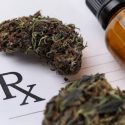What Is A Relapse In Depression?
Depression is a mental health disorder that affects millions of people worldwide, and while treatment can help alleviate symptoms, it’s not uncommon for people to experience a relapse. A relapse in depression refers to the return or worsening of depressive symptoms after a period of improvement. It can be a frustrating and depressing experience for individuals who have made progress in managing their depression.
In this blog post, we will explore the concept of relapse in depression, its symptoms, what steps can be taken to manage this major depressive disorder, and the best psychiatrist Los Angeles has to offer.
What is a Relapse in Depression?
A relapse in depression refers to the return or worsening of depressive symptoms after a period of improvement. It is a common occurrence for people with depression, especially if they have not fully addressed the underlying causes of their depression or have stopped treatment prematurely.
A relapse can be triggered by a variety of factors, including stress, life changes, trauma, or a lack of social support. The symptoms of relapse in depression may include feelings of sadness, hopelessness, worthlessness, and guilt, as well as changes in appetite, sleep, and energy levels.
It’s essential to seek professional help if you experience a relapse in depression or have a depressive episode, as it can lead to major depression, increased risk of suicide, and other complications. Treatment options may include therapy, medication, or a combination of both and may be adjusted based on the severity of the relapse and the individual’s specific needs.
Signs and Symptoms of a Depression Relapse
The signs and symptoms of a depression relapse can differ from person to person, but some common indicators include:
1. Constant feelings of sadness, hopelessness, and worthlessness
2. Loss of interest in activities that were once amusing
3. Changes in appetite, either overeating or loss of appetite
4. Insomnia or sleeping too much
5. Fatigue or loss of energy
6. Difficulty concentrating or making decisions
7. Feelings of guilt or shame
8. Physical symptoms such as headaches, stomach aches, or body aches
9. Irritability or restlessness
10. Suicidal thoughts or behaviors
It’s essential to seek professional help if you experience any of these or other depression symptoms, as they can indicate a relapse of depression. A mental health professional can guide you in determining the best course of action and provide support during this challenging time.
It’s important to remember that a relapse doesn’t mean that you have failed or that you can’t overcome depression. With the right treatment and support, you can manage depression and regain control of your life.
Causes of Depression Relapse
There are various factors that can contribute to a relapse in depression, including:
Stopping Treatment
One of the most common reasons for depression relapse is stopping treatment prematurely, whether it’s medication, therapy, or a combination of both. It’s essential to continue treatment even after symptoms improve to reduce the risk of relapse.
Stressful Life Events
Stressful life events, like losing a loved one, a job loss, or a relationship breakup, may trigger a relapse into depression. These events can be particularly challenging for individuals with depression, and it’s important to seek support during these times.
Substance Abuse
Substance abuse can increase the risk of depression relapse, particularly for individuals with a history of substance abuse or addiction.
Lack of Social Support
A lack of social support or isolation can increase the risk of depression relapse. It’s essential to maintain a strong support network of family, friends, or support groups.
Genetics
A family history of depression or a genetic predisposition to depression can increase the risk of relapse.
Chronic Medical Conditions
Chronic medical conditions, like heart disease, diabetes, or chronic pain, can increase the risk of depression relapse, particularly if the condition is difficult to manage or causes significant disability.
It’s important to work with a mental health professional to identify the specific causes of depression relapse and develop a plan to manage it. By addressing the underlying causes and receiving appropriate treatment, individuals with depression can reduce the risk of relapse and manage their symptoms effectively.
How Can You Manage Depression Relapse?
Managing a depression relapse can be challenging, but there are various strategies that individuals can use to reduce symptoms and prevent future relapses. Some of these strategies include:
Seek Professional Help
The first step in managing a depression relapse is to seek professional help from a mental health provider. They can help you identify the causes of your relapse, develop a treatment plan, and provide ongoing support and guidance.
Continue Treatment
If you’ve stopped treatment, it’s important to resume medication, therapy, or a combination of both as soon as possible to lessen the risk of relapse.
Practice Self-care
Self-care is essential for managing depression, including relapse. This can involve getting enough sleep, eating a healthy diet, exercising regularly, practicing relaxation methods such as meditation or deep breathing, and engaging in activities that bring you utter joy.
Avoid Alcohol and Drugs
Substance abuse can increase the risk of depression relapse, so it’s essential to avoid alcohol and drugs.
Build a Strong Support Network
Having a strong support network of family, friends, or support groups can help reduce the risk of relapse and provide emotional support during challenging times.
Manage Stress
Stress can trigger a depression relapse, so it’s essential to manage stress effectively. This can include practicing stress-reduction techniques, such as mindfulness meditation or yoga, and avoiding situations that cause undue stress.
Be Patient
Recovery from a depression relapse can take time, so it’s important to be patient and take things one day at a time. With the right treatment and support, it is possible to manage depression and prevent future relapses.
Treatment for Relapsing Depression
The treatment for relapsing depression may vary depending on the severity of symptoms, the causes of the relapse, and the individual’s response to previous treatments. Some treatment options for relapsing depression include:
1. Medications: Antidepressant medications can be effective in reducing symptoms of depression and preventing relapse. Different types of antidepressants may be prescribed, and the dosage ought to be adjusted based on the individual’s response to treatment.
2. Psychotherapy: Talk therapy, such as cognitive-behavioral therapy (CBT), can be effective in helping individuals manage symptoms of depression and prevent relapse. Therapy can help individuals identify negative thought patterns and develop coping strategies to manage them.
3. Electroconvulsive therapy (ECT): ECT is a treatment that includes passing electrical currents through the brain to produce a seizure. It can be effective in treating severe depression and preventing relapse, particularly in individuals who have not responded to other treatments.
4. Transcranial magnetic stimulation (TMS): TMS is a non-invasive procedure that uses magnetic fields to stimulate nerve cells in the brain. It can be effective in treating depression and preventing relapse, particularly in individuals who have not responded to other treatments.
5. Lifestyle changes: Making lifestyle changes, such as engaging in daily exercise, getting enough sleep, and eating a healthy diet, can be effective in managing symptoms of depression and preventing relapse.
It’s important to work with a mental health professional to identify a treatment plan that is tailored to your specific needs and circumstances. With the right treatment and support, it is possible to manage depression and prevent relapse.
Tips to Find the Best Psychiatrist in Los Angeles
Here are a few tips for finding the best psychiatrist in Los Angeles in order to cope with depression relapse:
1. Look for licensed and experienced psychiatrists: Ensure that the psychiatrist you choose is licensed by the state of California and has experience in treating the type of issues you are facing.
2. Check credentials: Look for psychiatrists who have credentials in the areas you need help with, such as depression, anxiety, trauma, addiction, or other mental health issues.
3. Read reviews: Scrutinize online reviews on websites such as Psychology Today, Yelp, or Google to get an idea of the experiences of other clients.
4. Ask for recommendations: Ask for recommendations from family, friends, or your primary care physician. They may know a good psychiatrist that they can recommend.
5. Schedule a consultation: Many psychiatrists offer a free consultation to potential clients. Take advantage of this and schedule a consultation to see if the psychiatrist is a good fit for you.
Remember, finding the right psychiatrist is a personal decision, and what works for one person may not work for another. Take your time, do your complete research, and don’t be afraid to ask questions to find the best psychiatrist for you.
Conclusion
A relapse in depression can be a challenging and frustrating experience for those who have previously experienced depression. Recognizing the signs and symptoms of relapse is an important first step in preventing future episodes.
Understanding the causes of relapse and implementing effective management strategies, such as seeking professional help, continuing treatment, practicing self-care, and building a strong support network, can help reduce the risk of relapse and improve overall mental health.
While relapse can be discouraging, it’s essential to remember that with the correct treatment and support, it is possible to manage depression and prevent future relapses. It’s never too late to search for help and take control of your mental health.



